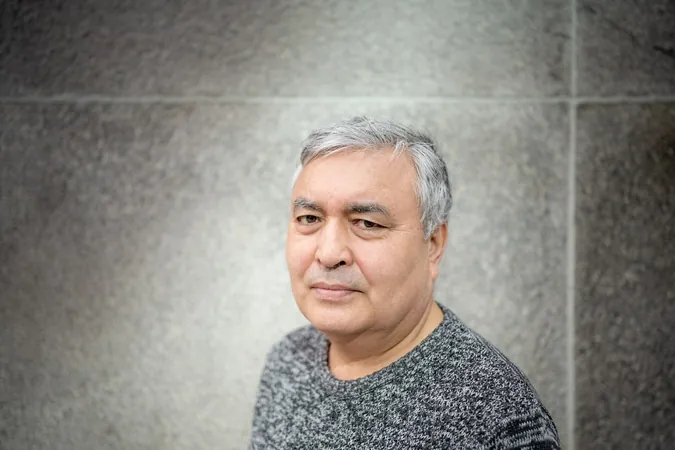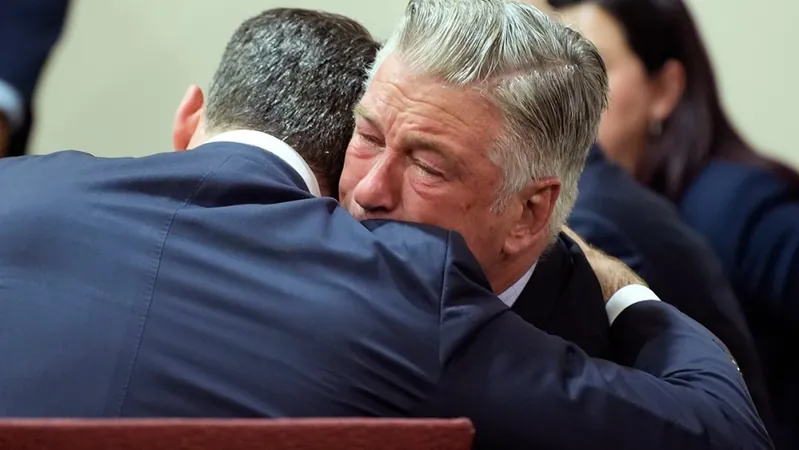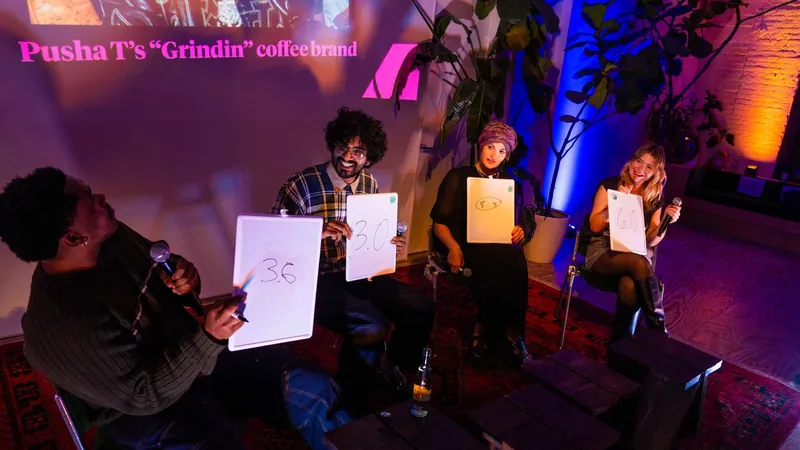
China Strikes Back! 20 Canadians Face Sanctions Amid Ongoing Human Rights Crisis!
2024-12-22
Author: William
Introduction
In a dramatic escalation of tensions, China has slapped sanctions on two prominent Canadian organizations, as well as 20 individual members, targeting advocates for the Uyghurs and Tibetans—ethnic groups that have faced severe repression at the hands of Beijing.
Sanction Details
This unprecedented move specifically targets the Uyghur Rights Advocacy Project and the Canada Tibet Committee. The sanctioned individuals are now banned from entering China, and any assets they own within the country are subject to seizure. This is seen as a retaliation against their unwavering advocacy for human rights, particularly in regions ravaged by China's controversial policies.
Human Rights Violations
In Xinjiang, home to Uyghurs and other Turkic minorities, a range of human rights violations have raised alarms globally. The United Nations High Commissioner for Human Rights recently reported that China's actions may qualify as "crimes against humanity." These sobering allegations hint at years of forced internment, coerced labor, and the systemic erosion of cultural and religious practices.
Prominent Targets
Targets of the latest sanctions include ex-Canadian diplomat Charles Burton and Margaret McCuaig-Johnston, both of whom serve as policy advisors for the Uyghur Rights Advocacy Project. McCuaig-Johnston expressed that these measures reflect a fundamental shift in China's approach under President Xi Jinping, who ascended to power in 2012. She lamented her transformation from a proponent of Canada-China friendship to a sanctioned critic, signaling the deteriorating diplomatic relations.
Responses from Canada Tibet Committee
The executive director of the Canada Tibet Committee, Sherap Therchin, noted that the sanctions formalize a situation members have been aware of since they joined the organization. Human Rights Watch echoed concerns regarding Tibet, revealing a grim landscape where expressing dissent—over environmental degradation or cultural erosion—can lead to devastating repercussions.
Reactions to Sanctions
This hefty round of sanctions follows Canada's recent measures against Chinese officials believed to be responsible for human rights abuses—particularly with regard to Xinjiang and Tibet, territories that were subject to brutal annexation over 70 years ago. The standoff between Canada and China prompts questions about international accountability, especially as the global community continues to grapple with China's increasing assertiveness on human rights issues.
Canadian Figures Targeted
Notably, among those targeted are well-known Canadian figures, including Mehmet Tohti, the executive director of the Uyghur Rights Advocacy Project, as well as several law professors and human rights activists. Their participation in advocating for marginalized communities has drawn the ire of the Chinese government.
Criticism from China
In response to the sanctions, voices from within China criticize Canada for what they perceive as spreading misinformation against the state. A prominent academic associated with Chinese state media cautioned that Canada must reconsider its role in the ongoing discourse surrounding China.
Historical Context
History hasn't looked kindly upon China's treatment of minorities, especially in Xinjiang. Recent reports indicate that upwards of a million Uyghurs have been detained in what China describes as "vocational training centers"—a narrative widely criticized as a façade for mass indoctrination and forced labor.
Implications of Sanctions
The implications of these sanctions extend beyond simply affecting individual activists; they threaten the very fabric of diplomatic relations between Canada and China, casting a shadow over future discussions regarding trade, human rights, and international cooperation.
Conclusion
As the situation continues to evolve, the world watches closely. These developments not only highlight the growing rift between China and Western nations but also serve as a stark reminder of the ongoing struggle for human rights in the face of systemic oppression. Will these sanctions lead to substantive change, or are they merely the latest chapter in an escalating geopolitical tug-of-war?









 Brasil (PT)
Brasil (PT)
 Canada (EN)
Canada (EN)
 Chile (ES)
Chile (ES)
 España (ES)
España (ES)
 France (FR)
France (FR)
 Hong Kong (EN)
Hong Kong (EN)
 Italia (IT)
Italia (IT)
 日本 (JA)
日本 (JA)
 Magyarország (HU)
Magyarország (HU)
 Norge (NO)
Norge (NO)
 Polska (PL)
Polska (PL)
 Schweiz (DE)
Schweiz (DE)
 Singapore (EN)
Singapore (EN)
 Sverige (SV)
Sverige (SV)
 Suomi (FI)
Suomi (FI)
 Türkiye (TR)
Türkiye (TR)